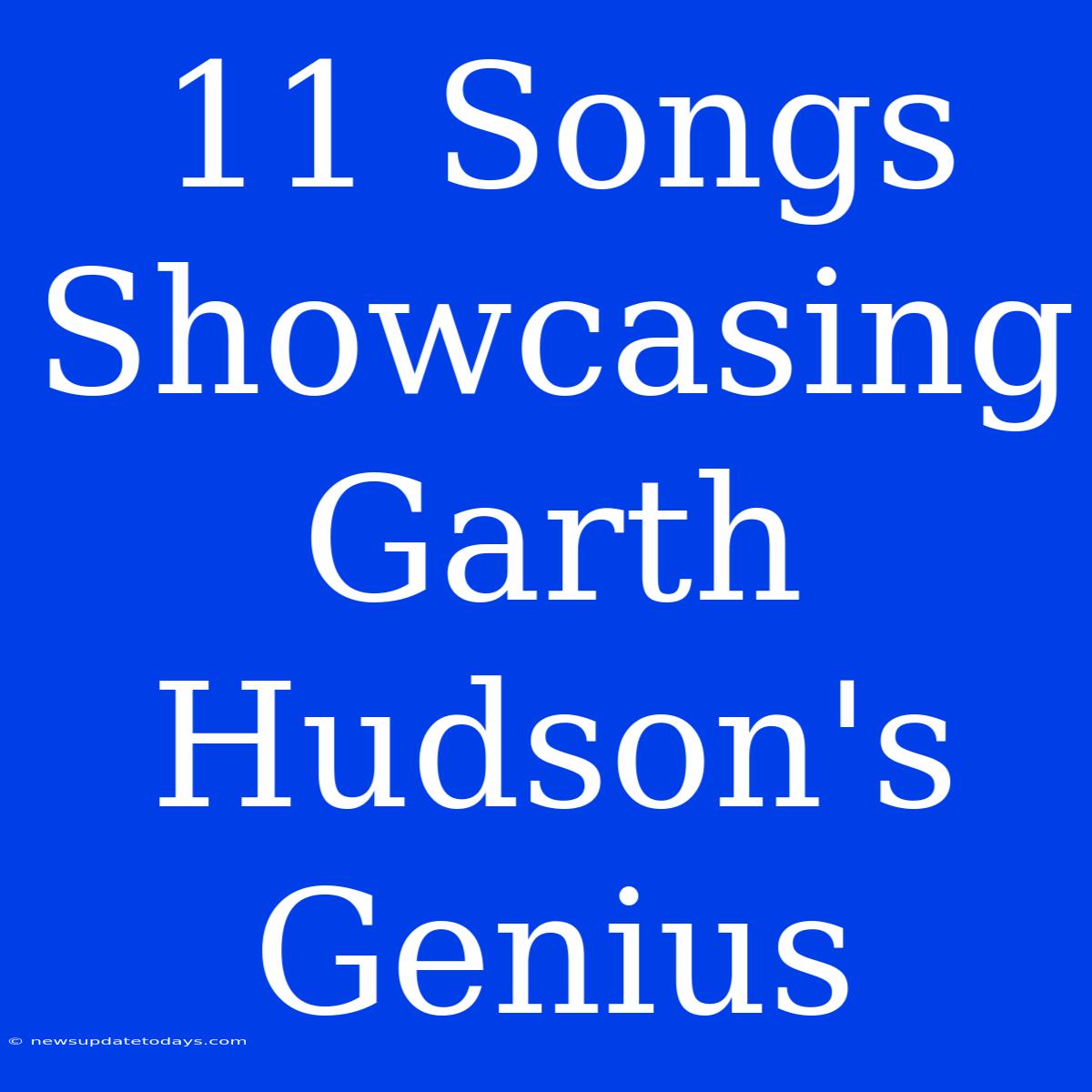11 Songs Showcasing Garth Hudson's Genius: The Unsung Architect of The Band's Sound
Garth Hudson. The name might not ring a bell for casual music fans, but for those who appreciate the subtle artistry that elevates music from good to transcendent, Hudson is a legend. He was the organist, keyboardist, and musical architect behind The Band, a group whose influence resonates deeply across genres. This isn't just about iconic riffs; it's about the textures, the moods, the unexpected sonic landscapes Hudson conjured. This article explores 11 songs that undeniably showcase his genius.
The Unseen Maestro: Understanding Hudson's Impact
Before diving into the tracks, it's crucial to understand Hudson's unique contribution. He wasn't just playing pre-written parts; he was creating the atmosphere, weaving intricate tapestries of sound that underpinned The Band's distinctive sound. His mastery of various instruments – including the Lowrey Deluxe organ, the accordion, the clavinet, and even the dulcimer – allowed for incredible versatility and an unparalleled sonic palette.
11 Songs that Define Hudson's Genius:
-
"The Weight": This iconic track features Hudson's Lowrey organ, providing a somber, almost gospel-like undercurrent that perfectly complements the song's weary narrative. The organ's sustained notes create a feeling of inescapable gravity, anchoring the entire performance.
-
"Chest Fever": Here, Hudson's organ work is less restrained. It's wild, almost psychedelic, a driving force that propels the song into a frenetic energy. The interplay between his organ and Robbie Robertson's guitar is a masterclass in musical synergy.
-
"Up on Cripple Creek": This upbeat track sees Hudson employ a variety of instruments, seamlessly blending accordion and organ to create a joyous, almost celebratory feel. His contributions are integral to the song's infectious energy.
-
"King Harvest (Has Surely Come)": The haunting melody of this song is underscored by Hudson's masterful organ playing. The sustained notes and subtle flourishes add a layer of mystical depth, enhancing the song's melancholic beauty.
-
"Stage Fright": Hudson's use of the Lowrey organ is particularly effective in this song, adding a sense of nervous energy and building tension. The organ subtly shifts and evolves throughout the song, reflecting the lyrical themes of anxiety and performance pressure.
-
"It Makes No Difference": This gentle ballad benefits immensely from Hudson's understated organ playing. It's subtle, yet essential, providing a warm, comforting backdrop that enhances the song's emotional impact.
-
"Tears of Rage": The organ in "Tears of Rage" is almost operatic in its scope. Hudson's playing is dramatic, emotional, and perfectly complements the song's raw intensity.
-
"Across the Great Divide": This instrumental piece showcases Hudson's improvisational skills. The organ takes center stage, creating a shifting soundscape of textures and moods.
-
"The Night They Drove Old Dixie Down": While the song is driven by Robertson's guitar, Hudson's subtle organ fills add depth and emotional resonance, strengthening the song's storytelling.
-
"Whispering Pines": The accordion takes center stage in this track, adding a traditional folk element to the song's somber mood. Hudson's expertise extends beyond the organ, as shown by his skill with this instrument.
-
"Acadian Driftwood": This more experimental track features Hudson's eclectic approach. Here, he uses a variety of instruments and sounds to build an atmospheric and ethereal soundscape, demonstrating his adventurous approach to music.
Conclusion: A Legacy of Sound
Garth Hudson's contributions to The Band's musical legacy are undeniable. He wasn't just a sideman; he was a creative force, a sonic architect who shaped their sound in profound ways. These 11 songs only scratch the surface of his genius. Take the time to listen closely; you'll hear the subtle nuances, the unexpected flourishes, the sheer mastery that elevated The Band to legendary status. Listen carefully, and you'll hear the genius of Garth Hudson.

